Join us at the 2025 AEE and Bauhinia Experiential Learning Asia-Pacific Region Conference, held at The ISF Academy from February 12-16, 2025!
Experience the power of outdoor education, service learning, risk management, child safeguarding and athlete voice and wellbeing through our five core streams. Whether you are a teacher, in school management, an outdoor education professional, an industry provider or any other profession that works with children, this regional bilingual (ENG/CHI) conference is perfect for you.
Immerse yourself in the knowledge, experience and visions of four international experts and leaders in their profession who will deliver inspiring keynote presentations and workshops. Gain the opportunity to earn valuable international certification in a variety of fields including Risk Management, Wilderness First Aid, Sports Climbing, Mountain Biking and many more.
This is the first conference of its kind that provides you with the opportunity to expand your skills, network with like-minded professionals, and discover approaches to experiential learning. You will benefit from the presence of educators and industry pioneers who are passionate about creating meaningful learning experiences.
Don’t miss out on this incredible opportunity to enhance your professional development and make a positive impact on your students and the community!
Register now to enjoy the priority ticketing until October 31, 2024!
Unlock your potential and become a leader in experiential learning!
Additional information regarding the certifications and accreditations can be found under “Pre-Conference”. It is important to note that the outlined schedule is subject to change as we finalize the details.
PRE-CONFERENCE – Wednesday, February 12 – Friday, February 14
8:00 a.m. – 5:30 p.m.
Internationally recognized certifications and accreditations
WELCOME BANQUET – Friday, February 14
6:00 – 7:00 p.m.: Reception
7:00 – 9:00 p.m.: Banquet
We cordially invite you to join us on the evening of Friday, February 14, for an esteemed panel discussion with all four keynote speakers from the conference sharing on the topic “The Advancement of Experiential Learning: Together We Grow.”
This special occasion presents a unique opportunity for you to gain knowledge and find inspiration from a distinguished group of experts, leaders, and innovators who are at the forefront of shaping the landscape of experiential learning.
We encourage you to participate in this enlightening event, where you will gain a broader understanding of ideas that have a profound impact on learning and organizational development. The focus will be on education, with particular attention given to the transformative effects of experiential learning in nurturing student character and values.
| Time | Day 1 – Saturday, February 15 | ||||
| 8:00 a.m. – 8:15 a.m. | Opening Ceremony, Wushu Performance | ||||
| 8:15 a.m. – 8:45 a.m. | Welcome Speech: Dr. Malcolm Pritchard | ||||
| 8:45 a.m. – 9:45 a.m. | Keynote Address: Mr. Tim Gerrish – Child Safeguarding | ||||
| Streams | Child Safeguarding | Risk Management | Outdoor Education | Service Learning | Athlete Voice and wellbeing |
| 9:45 a.m. – 11:15 a.m. | Workshops | Dr. Clare Dallat | Workshops | Cathryn Berger Kaye | Workshops |
| 11:15 a.m. – 12:45 p.m. | Workshops | Workshops | Dr. David Marsden | Athlete Voice and Wellbeing Workshop | |
| 12:45 p.m. – 1:45 p.m. | LUNCH | ||||
| 1:45 p.m. – 2:45 p.m. | Keynote Address: Dr. David Marsden – Outdoor Education | ||||
| 2:45 p.m. – 4:15 p.m. | Mr. Tim Gerrish | Workshops | Workshops | Cathryn Berger Kaye | Workshops |
| 4:15 p.m. – 5:15 p.m. | Keynote Address: Ms. Cathryn Berger Kaye – Service Learning | ||||
| 5:30 p.m. – 7:00 p.m. | COCKTAIL RECEPTION | ||||
| Time | Day 2 – Sunday, February 16 | ||||
| 8:30 a.m. – 9:30 a.m. | Keynote Address: Dr. Clare Dallat – Risk Management | ||||
| Streams | Child Safeguarding | Risk Management | Outdoor Education | Service Learning | Athlete Voice and Wellbeing |
| 9:30 a.m. – 11:00 a.m. | Workshops | Workshops | Dr. David Marsden | Ms. Cathryn Berger Kaye | Mr. LAI Chung Ho and Ms. AU Hoi-shun, Stephanie |
| 11:00 a.m. – 12:30 p.m. | Mr. Tim Gerrish | Workshops | Workshops | Ms. Karen Lo, and Ms. Camille Cheng Enhancing Student-Athlete Wellbeing: Strategies from Sport to the Classroom | |
| 12:30 p.m. – 1:30 p.m. | LUNCH | ||||
| 1:30 p.m. – 2:30 p.m. | Fireside Chat: Ms. Karen Lo, Ms. Au Hoi-shun, Stephanie, Ms. Camille Cheng and Mr. Lai Chun Ho, Boyce – Athlete Voice and Wellbeing | ||||
| 2:30 p.m. – 4:00 p.m. | Workshops | Dr. Clare Dallat | Workshops | Workshops | Workshops |
| 4:00 p.m. – 4:30 p.m. | Conference Reflection | ||||
The Call for Presenters is now open for the 2025 AEE and Bauhinia Experiential Learning Asia-Pacific Region Conference. We are actively seeking presenters who specialize in the fields of Outdoor Education, Risk Management, Child Safeguarding, Service Learning and Athlete Voice and Wellbeing. This is an exceptional opportunity for professionals like yourself to share your expertise and contribute to the advancement of these important areas.
The Call for Presenters will remain open until October 31, 2024. We encourage you to visit the conference website to familiarize yourself with the event’s content and immerse yourself in the conference theme of Experience and Excellence. As you explore the website, consider a topic that will captivate and engage your peers, providing them with valuable insights and knowledge.
It’s important to note that, at this stage, you are only required to submit an application with a concise title and description of your proposed presentation. There is no need to provide the full presentation at this time. This approach allows you the flexibility to outline your ideas and intentions while having ample time until the end of the calendar year to prepare your actual presentation. This ensures that you can deliver a well-prepared and impactful session that showcases your expertise.
We strongly encourage you to seize this opportunity and embrace the challenge of presenting at this prestigious event. By sharing your knowledge and experiences, you have the chance to make a significant impact and contribute to the professional growth of your peers. Should you have any questions or require further information, please feel free to contact [email protected]. Their team will be more than happy to assist you with any inquiries regarding the application process or registration.
Register now and take the first step toward making a meaningful impact on the conference attendees.

When asked “Where do you live?” Cathryn Berger Kaye often answers “in Los Angeles and airports.” As president of CBK Associates, she has traveled throughout the United States and globally, providing conference keynotes, in-depth institutes, and school on-site consultations with tailored education and learning resources. Her expertise spans service learning, intercultural understanding, social and emotional learning, creative curriculum design, youth engagement and leadership, effective teacher strategies, and environmental sustainability, all towards infusing social justice into the mainstream of education. Her work is highly engaging while exemplifying best teaching practices. She consulted extensively with the International Baccalaureate Organization as a lead co-author of the Diplomma Programme CAS (Creativity, Activity, Service) Guide with additional influence on the Middle Years Programme and the Career-Related Programme.
A former teacher, Cathryn engages participants and collaborators with practical ideas that work, poignant stories worth remembering, and strategies that enliven teaching and learning. With years of experience in diverse settings—including teaching in rural, suburban and urban schools—she knows the importance of a community’s landscape. By visiting schools in 63 countries, she has a deep appreciation for all the dedicated educators who care deeply about our children and our world. She is known for sustained relationships that build internal capacity for excellence.
She is the author of The Complete Guide to Service Learning and two books with environmental advocate Philippe Cousteau, Going Blue: A Teen Guide to Saving Earth’s Ocean, Lakes, Rivers & Wetlands and Make a Splash! A Kid’s Guide to Saving Earth’s Ocean, Lakes, Rivers, & Wetlands. She has also written a series of Kid’s Guides tackling the subjects of climate change and global warming, hunger and homeless, reading, protecting and caring for animals. Her first published book, Word Works–Why the Alphabet is a Kid’s Best Friend , was written to keep the joy of writing alive for children.

Dr. David Marsden’s journey in outdoor education, stretching over three decades, traces back to his formative adventures in the wilderness regions of South Eastern Australia. These early explorations ignited his passion, setting the stage for a career that started as a technical instructor and evolved into an outdoor educator, academic, consultant, and executive. Along the way, Dave has worked closely with a diverse array of age groups and cultural backgrounds, guiding them through immersive experiences rooted in slow and wild pedagogies.
Currently serving as Executive Director at The Outdoor Education Group, Dave spearheads initiatives that annually connect 35,000 young Australians with the natural world. Supported by a dedicated team of over 250 outdoor education professionals, he champions transformative experiences that foster a deep appreciation for nature. Dave’s doctoral research developed a framework to identify and enhance the knowledge and skills gained by pre-service outdoor educators through practical experience.
Dave’s influence extends beyond his organisational leadership, reaching into advocacy roles. Currently, he serves on the board of Outdoors Victoria and holds the position of deputy chair on the National Centre for Outdoor Risk and Readiness advisory group. In these roles, he promotes outdoor education and time in nature as a means to foster genuine human care and environmental stewardship.
Inspired by outdoor education’s unparalleled capacity to cultivate meaningful connections, Dave remains committed to empowering others through transformative outdoor experiences.
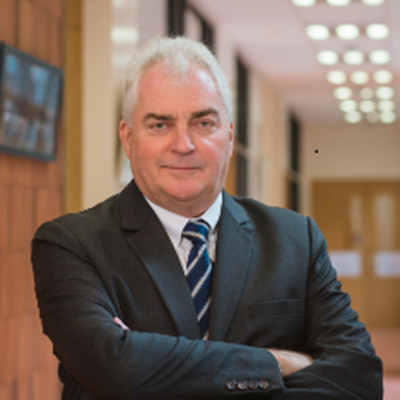
Tim Gerrish O.B.E. is a highly committed and commended International Child Protection specialist with extensive experience in advising on child safeguarding risk management issues and investigations. He specializes in advising international school leaders, conducting audits and evaluations as well as developing and delivering top class training on child safeguarding for international schools and high-profile organizations all around the world. Tim is an accredited consultant to the Council of International Schools (CIS), and Federation of British International Schools in SE Asia (FOBISIA). He is a proactive leader and trainer who is passionate about building partnerships in an effort to ensure children are better protected globally.
Background
Tim is Founder and Director of International Child Protection Advisors (ICPA) Ltd, www.icpa.co.uk, his background is in law enforcement with 30 years experience as a detective with Scotland Yard in London. He was also head of the UK’s National Criminal Intelligence Service Serious Sex Offender unit before working with the Child Exploitation and Online Protection centre (CEOP). At CEOP his role was Head of International Partnerships, working with international schools, foreign governments, law enforcement agencies and child protection practitioners overseas. He has extensive experience of working with schools and other organizations within Southern and Southeast Asia, Asia Pacific, Europe, Africa, South America, and numerous other places around the world.
Honours and Awards
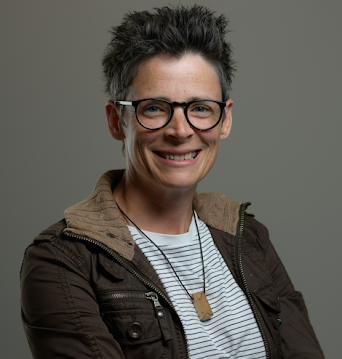
Dr Clare Dallat is based in Melbourne, Australia and is the Director of Risk Resolve. She has a PhD in Human Factors (Accident Prediction), an MSc. in Risk, Crisis and Disaster Management, and a Graduate Certificate in Transformational Leadership in Education, and is a Chartered Professional in Occupational Health and Safety.
Clare has over 25 years of professional experience in risk and safety across multiple domains, including outdoor and experiential education, the public sector, international tourism, and elite sport. Clare’s journey into the field of risk and safety wasn’t a traditional one. It was sparked by a deeply personal workplace tragedy at the age of 23. From that pivotal moment, she has blended her extensive real-world experience with evidence-based research in safety science, all while maintaining a practical and human-centered approach.
Clare has led over 100 complex risk and safety projects and reviews for State and Federal governments, regulators, and organisations across Australia, and internationally. She is an Adjunct Industry Research Fellow within the Centre for Human Factors and Sociotechnical Systems at The University of the Sunshine Coast, Queensland, and was the first person outside of North America to be presented with the prestigious Reb Gregg Wilderness Risk Management Award. This award recognizes her leadership, innovation, and service to international wilderness risk and safety management. As an academic, practitioner and natural storyteller, Clare’s approach emphasises curiosity and meaningful collaboration over box-ticking, offering a refreshing and much needed perspective on improving safety in workplaces worldwide.
In this fireside chat, our panellists will share their personal experiences navigating the unique challenges and pressures of being elite athletes. They’ll discuss how athletes can find their voice, the impact they’ve been able to have, and the advice they have for the next generation of athletes. We’ll also explore the role that sports organizations, schools, and the community can play in empowering athletes in positive ways. The goal is to have an open dialogue about the complexities of athlete advocacy and wellbeing.
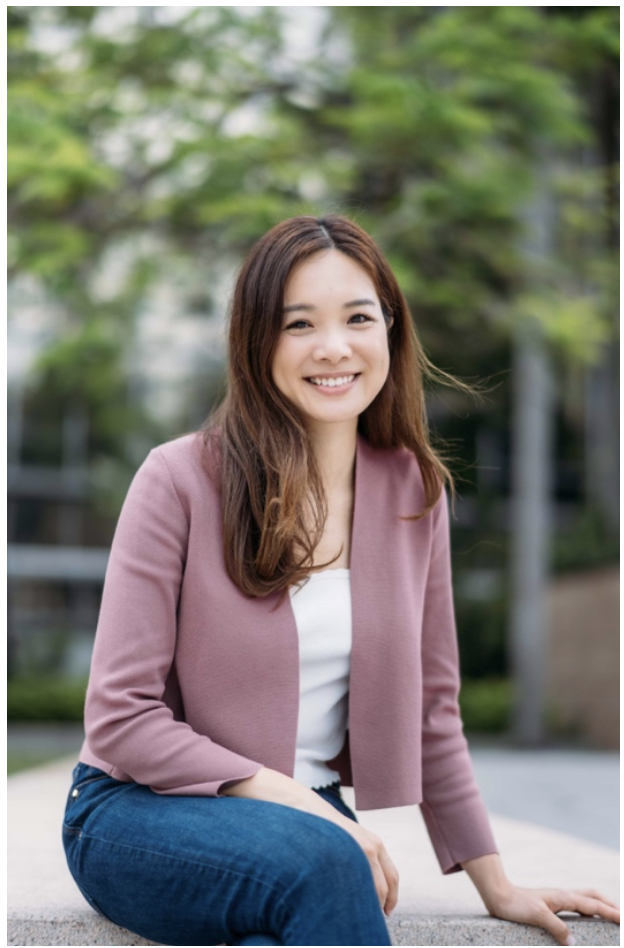
Karen is an author, practitioner, university lecturer and an Applied Sport and Performance Psychologist based in Hong Kong. Karen’s passion stems from her 7 years as a HK National swimmer and HK Sports Institute scholarship athlete, and was awarded the Outstanding Swimmers Award by both the HK Amateur Swimming Association and the HK Sports Institute in her teenage years.
Karen has provided psychological support to numerous top National Sport Associations, elite sport institutions and clubs in the region, including HK Jockey Club, HK Jockey Club Racing Talent Training Centre (Apprentice Jockey School), Eastern Long Lions, HK Golf Association, HK Baseball
Association, Hong Kong Rugby Union, Hong Kong Academy for Performing Arts, and many more. She also works with athletes, performers and coaches individually across the globe from recreational to National, NCAA (Div. 1) professional level. She is a regular Sport Psychology speaker for the HK Education Bureau PE Professional Development Program and trains PE teachers on coaching philosophies and creating motivational climates for student-athletes. She has published two sport psychology books for HK – Sport Psychology: Building confidence and maximizing potential and Sport Psychology 2: Are you just an athlete? (in press) and is a co-author for a number of applied sport psychology book chapters in English.
Karen received a Bachelor of Social Sciences (Hons.) in Psychology at the University of Hong Kong and completed a Master of Education in Sport Psychology at Boston University, USA. She is the first Certified Mental Performance Consultant (CMPC®, #499) of the Association for Applied Sport Psychology (AASP), USA in the greater China area, and a Registered Practitioner of the International Society of Sport Psychology (ISSP-R). She was awarded the Global Impact Award 2023 by Boston University Wheelock College of Education in recognition of her outstanding achievement and significant global contribution to the field of sport psychology.

Stephanie Au Hoi-shun is a distinguished five-time Olympian, proudly representing Hong Kong at the Summer Olympics in 2008, 2012, 2016, 2020, and 2024. In addition to her Olympic appearances, she has competed in five editions of the FINA World Aquatics Championships (2013, 2015, 2019, 2022, 2023) and the FINA World Swimming Championships (25 m) (2008, 2014, 2018, 2021, 2022).
Au holds an impressive 18 national records for Hong Kong and is a former record holder in eight other events. Currently, she maintains long course records in the 800 m freestyle and 50 m and 100 m backstroke, as well as short course records in the 800 m and 1500 m freestyle and 50 m, 100 m, and 200 m backstroke. She also holds all long course and short course relay records for women’s teams, including the 4×100 m medley, 4×100 m freestyle, and 4×200 m freestyle.
A graduate of the University of California, Berkeley, Au earned her degree in Environmental Economics and Policy in 2014. She was also honored with the 24th Hong Kong Outstanding Students Awards, recognizing her achievements both in academics and athletics.
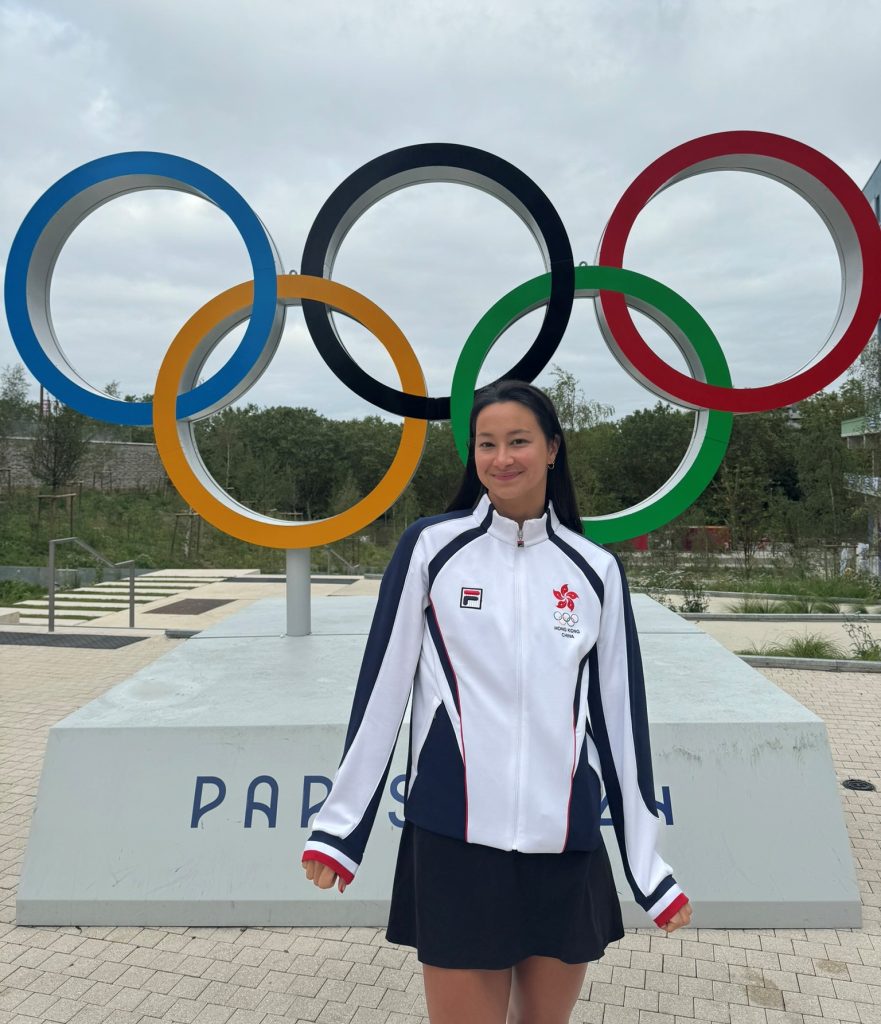
Camille Cheng is a three time Hong Kong Olympic Swimmer in 2016, 2020 and 2024 and a seven-time Asian Games medallist. She grew up between Hong Kong and Beijing before graduating from the University of California, Berkeley in 2015 with a psychology degree. Camille’s Cal career was bookended by team national championships in 2012 and then in 2015, when she served as one of the team captains. Furthering her studies in psychology, Camille obtained her Master’s in Industrial-Organizational Psychology from the Chinese University of Hong Kong in 2019 and a Sports and Performance Psychology certificate in 2021.
Camille is also the co-founder of Mind the Waves, a Hong Kong based charity aimed at promoting mental wellbeing among the youth.
As an Olympian with a background in psychology, Camille is passionate about using her platform to share her experiences in hopes of inspiring and empowering the younger generation.
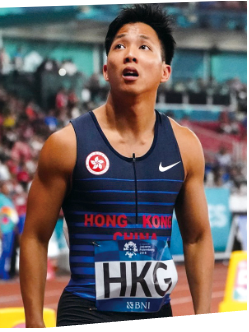
Former Hong Kong Athlete, Track and Field
Athletic Coach, The Hong Kong Polytechnic University
Manager, Multinational Investment Bank
Upon his retirement from the Hong Kong Team in 2018, he switched track to the financial section and finished a Master’s degree programme in entrepreneurship. The lessons he learnt through successful, failure and injury had prepared him well for the transition and challenges.
| Certification Name | Organization | Course Description and Details |
| Sport Climbing 1-2 | International Federation of Sport Climbing Asia | The purpose of this course is to give participants an enjoyable, safe and informative introductory, intermediate and advanced level of the sport of climbing.The course is designed for people with no prior knowledge of sport climbing. Participants will be introduced to: equipment, climbing techniques, checking procedures, belaying for top-roping, climbing calls, and lead climbing. Duration: 3 days Dates: February 12, 13 and 14 Time: 8:30 a.m. – 5:30 p.m. daily Fee: HKD2,340 per participant Venue: Shek Pik Experiential Learning Centre, Lantau Island AND The ISF Academy |
| Wilderness First-Aid | SOLO | The WFA is 16 hours long (two days), and focuses on the basic skills of: Response and Assessment, Musculoskeletal Injuries, Environmental Emergencies, Survival Skills, Soft Tissue Injuries, and Medical Emergencies. Duration: 2 days Dates: February 13 and 14 Time: 8:30 a.m. – 5:30 p.m. daily Fee: HK2,100 per participant Venue: Shek Pik Experiential Learning Centre, Lantau Island AND The ISF Academy |
| Risk Management for Outdoor Programs | Viristar | Risk Management Training is conducted under the following core subjects:
Duration: 3 days Dates: February 12, 13 and 14 Time: 8:30 a.m. – 5:30 p.m. daily Fee: HKD4,100 per participant Venue: The ISF Academy |
| Mental Health First Aid (MHFA) | MHFA Association of Hong Kong | Mental Health First Aid (MHFA) is an international certificate course originally developed in Australia and is now being conducted in many other countries including, the USA, Canada, UK, Scotland, Finland, Singapore, Hong Kong and more. This course is led by The ISF Academy staff and accredited by the MHFA Association of Hong Kong. It is a 12-hour training course that teaches how to support someone who is experiencing a mental health problem or in a mental health crisis before they can obtain professional help. In the course, you will learn
This program will enhance your knowledge and confidence in assisting individuals with mental health issues. Please note: to be eligible for the certificate you are required to complete the entire 12 hours of training. *In order to apply for this course, you should currently be in a pastoral leadership role or a Grade Level Leader. Duration: 3 days Dates: February 12, 13 and 14 Time: 8:30 a.m. – 12:30 p.m. daily Fee: HKD600 per participant Venue: The ISF Academy |
| MIAS Mountain Bike Leader Level 1 and Level 2 | Mountain Bike Instructors Award Scheme | The purpose of the Mountain Bike Instructors Award Scheme is to promote the safe enjoyment of mountain biking in an off-road environment. The scheme provides training and assessment in the technical and group management skills required by those who wish to lead groups in a variety of on and off-road environments in the UK and abroad. It integrates training, experience and assessment in a variety of testing conditions as well as some basic on road training. Since its introduction in Birmingham in 1989 the award has become recognised by Local Authorities, MOD, Emergency Services, Outdoor Education Centres and statutory Youth Services as providing technical excellence in this field. The scheme is recognised throughout the UK and abroad It is the national gauge against which standards of competence are measured. To prevent duplication and to compliment many of the existing awards which currently exist for walking. This award has been run in conjunction with standards which have already been set.
This award is used outside the UK in altitudes above 600 meters to lead groups on cycle/ mountain bike routes that are defined by map and ground. (Consideration should be given to MBL3 for leading groups in harsh mountain terrain on non-recognised routes). Duration: 2 days Dates: February 13 and 14 Time: 8:30 a.m. – 5:30 p.m. daily Fee: HKD2,695 per participant Venue: Shek Pik Experiential Learning Centre, Lantau Island |
| Stewards of Children – Child Sexual Abuse Prevention Training | TALK Hong Kong | This evidence-informed, award-winning two and a half hour training teaches adults to prevent, recognize, and react responsibly to child sexual abuse. Through interviews with a very diverse group of people with lived experience, experts, and treatment providers, Stewards of Children® teaches adults practical actions they can take to reduce instances of child sexual abuse in their organizations, families, and communities. Why is this urgent? Child sexual abuse is likely the most prevalent health problem children face, with the most serious array of consequences. In fact, 1 in 7 children will experience sexual abuse before their 18th birthday. Duration: 1 day Date: February 12 Time: 9:00 a.m. – 11:30 a.m. Fee: HKD550 per participant Venue: The ISF Academy |
| Off-Site Safety for School Trip Leaders and Designated Contact | Current Trends | This one day training is a practically based course which deals with active risk management and allows the sharing of good practice together with opportunities to raise issues directly related to your setting. Key Learning Outcomes:
Duration: 1 day Date: February 13 Time: 8:00 a.m. – 4:30 p.m. Fee: HKD875 per participant Capacity: 30 participants Venue: The ISF Academy |
| Enhanced Risk Assessment for the Outdoors | Current Trends | In this comprehensive one day training you will gain an in-depth understanding of risk assessments, their importance and how to effectively perform them specifically for off-site visits, expeditions, sports & activities outside the classroom. With a view that you can develop consistently robust risk assessment management plans, implement them and improve safety. Assessing risk in the outdoors is a crucial skill that involves evaluating potential hazards and making informed decisions to ensure safety and minimize potential dangers. This skill requires a deep understanding of environmental factors, knowledge of industry-specific guidelines, and the ability to analyze situations effectively. There is no expectation to suppress all accidents in the outdoor recreation sector; nevertheless, it is expected that all possible safety measures are taken in order to minimize the risk of accidents. The training will look at ways to enhance your written ‘due diligence’ based on current industry good practice, incorporating both risk benefit analysis and a STAGER approach. Duration: 1 day Date: February 14 Time: 8:30 a.m. – 4:30 p.m. Fee: HKD875 per participant Capacity: 24 participants Venue: The ISF Academy |
| Child Safeguarding Essential | Save the Children Hong Kong | In this workshop, the participants will learn key child-safety concepts and relevance to Hong Kong and global context. We will outline what participants should consider to keep their organisation safe for children. Through interactive learning activities and guided case study analysis, participants will build knowledge and confidence to protect children across their day-to-day work. Note: certification of participation with acknowledgement from SCHK Duration: 6 hours Number of sessions: 3 Date: February 12 (English session), 13 (Cantonese session) and 14 (Putonghua session) Time: 10:00 a.m. – 5:00 p.m. (1 hour lunch) Fee: HKD220 per participant Capacity: 25 participants Venue: The ISF Academy |

Join us for a dynamic workshop dedicated to exploring the well-being of mature athletes and the critical role of effective communication between athletes and coaches. As athletes progress in their careers, maintaining physical and mental health becomes increasingly important. This workshop will emphasize the power of two-way communication as a key tool for fostering a supportive and productive environment.
This workshop is ideal for mature athletes, coaches, sports administrators, and anyone involved in athlete development. Whether you’re looking to enhance your communication skills or gain insight into the needs of mature athletes, your participation is crucial. It is designed to share valuable insights into the mental and emotional wellbeing of student-athletes. Led by a seasoned sport psychologist and Olympic athletes, the session will explore the multifaceted challenges faced by student-athletes and provide practical strategies on how educators, coaches and teachers can help support their student-athletes’ overall wellbeing, fostering both academic and athletic success.
This workshop is designed to share valuable insights into the mental and emotional wellbeing of student-athletes. Led by a seasoned sport psychologist and Olympic athletes, the session will explore the multifaceted challenges faced by student-athletes and provide practical strategies on how educators, coaches and teachers can help support their student-athletes’ overall wellbeing, fostering both academic and athletic success.
There is a lot going on in this world every day that merits our attention. Daily news describes climate change and coral reef bleaching at unprecedented speeds. While food may be plentiful in some places, it is scarce in others. War is raging in locales near and far that has ramifications everywhere. Is housing a right or a privilege? Books augment learning, yet some children have none. A neighborhood may need an economic boost. How do topics such as these fit within our school curriculum and culture?
For decades, service learning has been a proven pedagogy that enlivens our classrooms. By informing and making connections with the good going on in the world, especially through stories that illustrate how young people are catalysts for positive change, our schools can be part of a new narrative.
Children and teens at all grade levels want to participate in their world and light up with the possibility of figuring out pathways that contribute to the social good. We are never too young or too old to act with purpose, especially one that elevates kindness, promotes equity, strengthens problem-solving, or builds meaningful reciprocal partnerships.
The world will keep spinning and change is inevitable. Let’s evolve with a narrative that shows how we all grew, we all stepped up to the challenges, we used our creativity and connectivity, we made impact, and we were determined. One of my favorite definitions describes service learning as “the fourth wall of the classroom that opens up to the world.” Let’s open it together and see what happens!
DAY TWO – Morning Session: Curricular Concepts and Reflection
Experience diverse ways to integrate service learning into your curriculum (it’s easier than you think!). Take a deep dive into the process of reflection to understand its value and necessity, plus methods that attract students.
We are more connected than ever before. The digital world gives us immediate access to world news, global issues, and to one another. While challenges can seem overwhelming, service learning provides a road map for our schools and classrooms to be part of significant contributions and authentic solutions.
Our students have a heart for service and ideas for action. Let’s use the service learning process to move toward meaningful inquiry that provokes curiosity, discovery, and growth. With service learning as a reliable pathway, we can include current issues in academics, while still meeting – and exceeding – the standards for developing knowledge, skills, and dispositions. Learning deepens as these growing abilities are transferred to new settings and situations, all for the common good.
This workshop is suitable for both novices and experts in service learning within a K-12 setting, including all teachers, Service Learning and PYP/MYP/DP Coordinators, and Curriculum Coordinators. Wherever you and your school are on the service learning journey, this experience offers essential concepts, practical ideas, and motivational strategies you can apply straight away!
Advance your practice! Join us to:
Explore curriculum ideas and academic connections possible at all grade levels. The process is highly interactive to model best teaching practices. You are guaranteed takeaway strategies that elevate student participation and activate students as catalysts for change.
DAY ONE – Full Day: Best Practices
Explore the foundational concepts of service learning along with the Sustainable Development Goals. Hear stories that both inspire and give credibility to the value and impact of this pedagogy. Participate in experiences that clarify each of the Five Stages of Service Learning in an enjoyable and lively session.
We are more connected than ever before. The digital world gives us immediate access to world news, global issues, and to one another. While challenges can seem overwhelming, service learning provides a road map for our schools and classrooms to be part of significant contributions and authentic solutions.
Our students have a heart for service and ideas for action. Let’s use the service learning process to move toward meaningful inquiry that provokes curiosity, discovery, and growth. With service learning as a reliable pathway, we can include current issues in academics, while still meeting – and exceeding – the standards for developing knowledge, skills, and dispositions. Learning deepens as these growing abilities are transferred to new settings and situations, all for the common good.
This workshop is suitable for both novices and experts in service learning within a K-12 setting, including all teachers, Service Learning and PYP/MYP/DP Coordinators, and Curriculum Coordinators. Wherever you and your school are on the service learning journey, this experience offers essential concepts, practical ideas, and motivational strategies you can apply straight away!
Advance your practice! Join us to:
Explore curriculum ideas and academic connections possible at all grade levels. The process is highly interactive to model best teaching practices. You are guaranteed takeaway strategies that elevate student participation and activate students as catalysts for change.
There are a number of challenges international schools and other organizations face when it comes to safeguarding children, but none of these challenges can be an excuse not to put the child at the center of all their considerations, by having suitable policies in place, and making it an integral part of the organization.
Every international school and child-focused organisation should have a child safeguarding policy, a staff code of conduct, and robust reporting measures in place. This does not simply mean having a set of documents on a shelf; it is about having procedures and a culture implemented and practiced day in, day out by every single member of that school or organization, in every area of operation, including experiential learning programs.
Let’s look at some key areas:
Attendance:
Aiming at companies and service providers who support schools with experiential learning trips and the provision of coaches for programs both on and offsite.
Outline:
Attendance:
Aiming at those managing child safeguarding in schools, coordinating and leading trips and educational visits, and recruiting external coaches who deliver programs in school
Outline:
This session presents a compelling argument for the role of outdoor learning in developing empathy, care, and a sense of connectedness among participants. It highlights current innovative practices that emphasize these values and explores the psychological and social benefits of fostering such traits through outdoor experiences. By envisioning the future role of outdoor education in addressing societal challenges, the presentation showcases successful programs as models for how care, empathy, and compassion can be integrated into educational practices. The session concludes by underscoring outdoor education’s potential to inspire a more empathetic, connected, and compassionate global community. Nurturing care and compassion through outdoor education supports educators in aligning programs to the UN’s Global Goals for education, sustainable development and global citizenship, and curriculum frameworks such as the International Baccalaureate.
Dr. David Marsden has dedicated over three decades to outdoor education, beginning with his formative experiences in the wilderness of South Eastern Australia. As Executive Director at The Outdoor Education Group, he leads efforts to connect 35,000 young Australians with nature each year, supported by a skilled team of 250 professionals. His doctoral research has significantly advanced the field by creating a framework to enhance the skills and knowledge of pre-service outdoor educators. Dr. Marsden also promotes the benefits of outdoor education and its safe delivery through his roles with Outdoors Victoria and the National Centre for Outdoor Risk and Readiness.
Today, as outdoor education occupies a critical role in a rapidly evolving educational landscape, it is poised to impact students and environmental sustainability significantly. Educational organisations worldwide are developing frameworks to maximise the transformative potential of outdoor environments. Yet, challenges persist in crafting inclusive, effective, and sustainable programs that meet global educational standards and adapt to local cultural contexts.
The demand for quality outdoor education is growing, driven by a diverse student body in need of skills like environmental stewardship, health, wellbeing, and social and emotional competencies. This need is met by innovative outdoor programs that foster resilience, teamwork, and leadership in natural settings.
This presentation will explore the role of Communities of Practice (CoPs) in enhancing the outdoor education sector. It will detail the process of establishing effective CoPs, using real-world examples to demonstrate their impact on the quality and scope of outdoor education programs. A specific case study involving collaborations between government, educational institutions, and industry leaders in Victoria, Australia, will highlight the potential of these partnerships.
The goal of this address is to provide a clear roadmap for educators, policymakers, and industry stakeholders to develop a connected and robust outdoor education community, equipping learners to navigate and thrive in a rapidly changing world.
Research shows that most foreseeable risks in adventurous activities are situated in the planning and preparation tasks often conducted well before getting into the canoe or the first kick of the ball (Dallat et al., 2018). By getting the management of these critical tasks right, we are much better placed to achieve the desired safety, quality, and educational outcomes from participation in these important activities. In this practical workshop, we’ll share a framework that will support you to evaluate your own risk profile, and where necessary, evolve your own planning and preparation systems for out-of-the-classroom activities. Designed for anyone involved in out-of-the-classroom activities, including third-party providers, senior and middle managers, teachers and coaches, this session will provide valuable, take-home, research-informed insights.
Clare will present a range of emerging themes, trends and insights from the risk and safety management practices of organizations around the world. Based on the insights from conducting over 100 multi-day risk and safety reviews of experiential programs, she will demonstrate how emerging trends, ironically designed to enhance safety performance, may in fact, be constraining it.